Small Press Expo (or SPX) nonprofit created in 1994 to promote artists and publishers who produce independent comics. It’s mission is to “To provide a forum to showcase new and emerging talent in the fields of comics, graphic novels and political cartooning”. In the spirit of this mission, the Comics Beat has conducted a series of interview with some of the phenomenal cartoonists in attendance at this year’s Small Press Expo. We hope that these interviews will improve our understanding of these creators voices, techniques, interests and influences.
In this first SPX 2017 interview series, we talked with Sally Ingraham. Sally is a cartoonist and educator based in Pittsburgh. I first became aware of her work thanks to the Comics Workbook Daily News, where Sally is the managing editor and where her daily strip Suzy and Cecil (with Gabriella Tito) is published. Suzy and Cecil is a charming strip about a young girl and her dog. I’ve reached out to Sally to talk about her strip, her work at the Comics Workbook and her upcoming workshops at SPX.
—
Philippe Leblanc: For those readers who may not be familiar with you and your work, can you tell us a little bit about yourself?
Sally Ingraham: I’m a cartoonist living in Pittsburgh, PA. I’ve had the good fortune and the gumption to channel my energy entirely into comics in the past few years. I grew up around the birding community, which bears a lot of similarities to the comics community – expos, funny outfits, a single-minded shared obsession (birds!), and a need for more cool women and young people to be involved. With that in mind, in addition to being a cartoonist I’ve fallen into being an educator, journalist, and historian, which really pushes my multitasking skills to the limits! At the moment I make a daily comic strip with Gabriella Tito called ‘Suzy & Cecil’, and am working on a book about birding in Pittsburgh. I teach afterschool comics classes and private classes, and even recently started doing “comics birthday parties”. I work for Bill Boichel at Copacetic Comics, one of the best alternative comics shops in the country, and I am the managing editor of Frank Santoro’s Comics Workbook website, and I help Frank facilitate the Comics Workbook Rowhouse Residency.
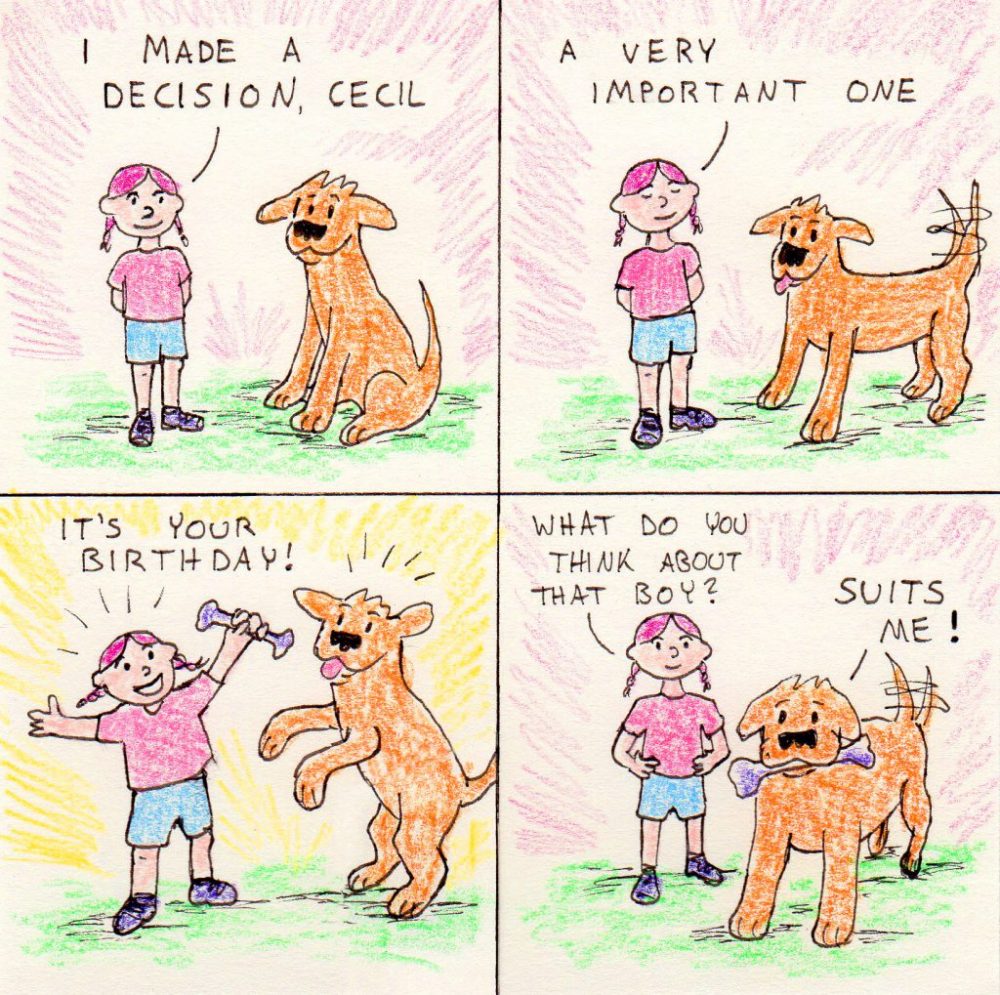
PL: Can you tell us how you got involved with Comics Workbook?
SI: I learned about Comics Workbook through the monthly meetings of the Pittsburgh Comics Salon, which Frank started with Juan Fernandez. The comics drills and exercises that Frank and Juan ran during the salons really pushed my own comics-making practice to a different level. Because of my background in music the connections that Frank was making between comics and musical structure made total sense to me, and changed the way I thought about the form. We talk about “comics as music” a lot. The diversity and inclusion of the greater Comics Workbook community really appealed to me as well, and being around people who were invested so utterly in their own work AND the wider community was really inspiring. I knew I wanted to be part of it.
When Frank started his Residency program in 2015 I asked if I could help out in any way, and Frank responded by giving me the space and resources to pursue and share my own comics-related interests. This led me to start the Comics Workbook Roller Derby “of the mind” League, which you can read about HERE, and begin building a library of comics made by women. I research and write about female comics makers now and throughout history every Friday in the Comics Workbook Daily News, and strive to make the Residency a place where women can feel comfortable coming to learn about and make comics.
PL: You’ll be teaching classes at the school in September. What can you tell us about those courses.
SI: In addition to working with residents at “the school” – the Rowhouse Residency – I’m teaching 3 classes in private schools in the Pittsburgh area. This is my 2nd year teaching comics locally. I take the Comics Workbook methods I’ve learned from Frank, and from Juan Fernandez, and translate them into terms that a 7 year old can grasp. Throughout the summer I was engaged in a lively exchange of ideas about comics making with the adult Rowhouse Residents who came through Pittsburgh, and it will be fun to channel those ideas into the comics I work on with my much younger students this fall. I’m always amazed by how readily most kids come to drawing comics. Their natural interest in storytelling – “and then, and then, and THEN!” can be poured into a grid and panels on a page, and they are sequencing and making really intelligent and interesting work before I know what’s happening.
PL: You’re doing a weekly round-up of comic news. I’ve been making those monthly and I’ve been finding this hard enough as it is. How do you find doing this collection of links every week?
SI: The Comics Workbook Daily News is a team effort, with Juan Fernandez, Caleb Orecchio, Aaron Cockle, Sam Ombiri, and myself doing the writing on our specific days each week. We are all collecting links and news items constantly as we make our internet rounds, and we add them to a shared file. I know when I sit down to write that in addition to my own gleanings, I can pull from this file. I enjoy being plugged into what’s going on in the community and industry, paying attention to the small presses and independent publishers, keeping up with who is making what these days, and who made what in the past. Documenting this stuff is part of my own education and if anyone else appreciates it, that’s a bonus!
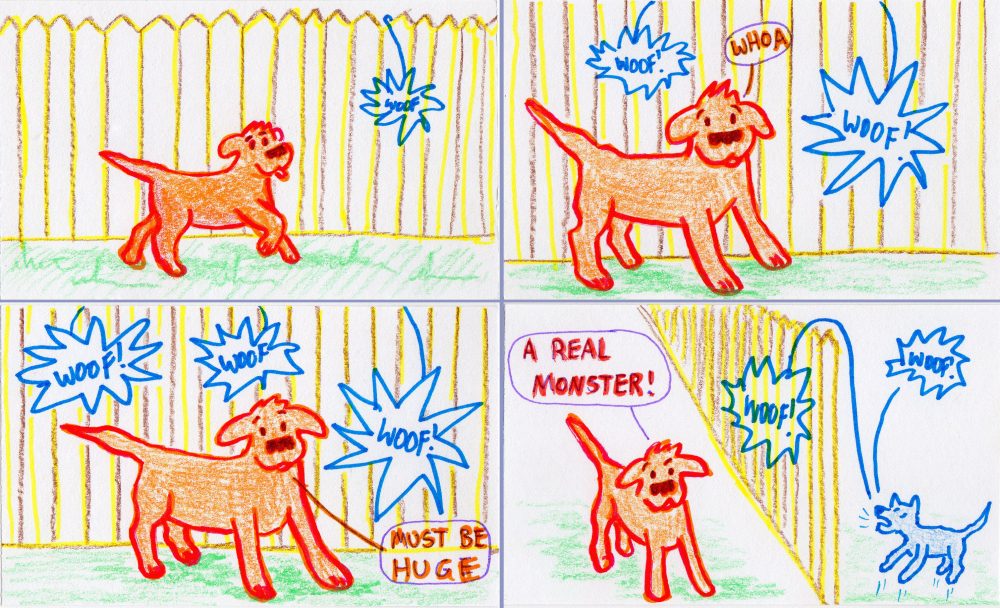
PL: You’ve been working with Gabriella Tito on a comic strip called Suzy & Cecil, the charming stories of a young girl and her dog. You’re using a 4 panel grid and are making these daily. How are you finding the constraints of the 4 panel grid after having done it for so long?
SI: Gabriella and I were interested in experiencing what it’s like to be a newspaper strip cartoonist, which is really the origin of the American comics form. The discipline and drive it takes to maintain a daily strip has been very useful to both of our practices. I grew up practicing the piano every day, but was never as strict about my drawing. Drawing Suzy & Cecil every other day for almost a year now, and sticking to the formal constraint of the 4 panel grid, has been very much like playing scales – scales that are pretty colorful and sound like a barking dog sometimes! Learning to write a gag, to let the beat fall in the right spot, to start and maybe conclude a story in 4 panels or make it continue into the next day, has all been really interesting.
PL: You’ll be publishing a first collection of Suzy and Cecil at SPX. Can you give us more details about this collection?
SI: We started the comic after Thanksgiving in 2016, and have published a strip every single day since then, so there are hundreds of Suzy & Cecil comic strips. They can all be seen on Instagram (@suzy_and_cecil) and in the Comics Workbook Daily News. For the collection we each picked 22 of our favorites, making a 48 page book which offers a nice gateway to the strip. The strip is based on characters that Frank Santoro and Bill Boichel created in the 90’s, and it’s been a pleasure to bring Suzy and Cecil to life. You can order the collection HERE.
PL: In addition to the classes you’ll be teaching starting in September, you’re offering a workshop at SPX 2017 with Audra Stang. I’m always curious to hear about how people use comics as a teaching tool and am curious to know what you’ll have the participants do. What will this workshop be about? (I’ll provide the info to register in there too!)
SI: For Audra and myself, comics allow us to tell stories and convey information better than we can using other means. We will be trying to share a little of the joy we find in that, while proving that anyone can use comics as a meaningful way to communicate and make sense of the world around us. The only thing we’ll be making participants do is make marks on a page – how they use those marks, whether word or image, to begin creating their own language will be up to them.
PL: You’re working on creating a comics curriculum for girls. Can you tell us a little bit more about this project.
SI: We all need good examples to follow, and it’s especially important for girls to have other cool women to look up to. As I pursue my own development I have been looking for masters of the medium that I can more readily identify with, and this has led me to the obvious conclusions: There are and have been loads of female cartoonists, but their work is still under-documented, less celebrated, and straight up forgotten. I’m interested in developing a comics curriculum for girls that documents, celebrates, and remembers the women who came before us while making new spaces for the women working today, and the ones that will be making comics tomorrow. I won’t exclude the comics of the many male cartoonists whose work I admire and aspire to, but I want to push the balance in a different direction with my own curriculum, placing the emphasis on female creators first. I’m in the development stages at the moment, still learning as much as I can from whomever will teach me, but I’ve discovered very quickly that I can’t sit around waiting for someone else to make the moves that I see opening up on the board – I’ve got to stay in the game.
PL: What do you want readers to take with them once they’ve finished reading your comics or your workshops?
SI: Comics are so lively – the exchange between the maker and the materials, the maker and their intentions, the maker and the reader, the reader and their own intentions and expectations – there’s nothing else like it. It’s exciting. It’s important, I think. There are a lot of complex frustrations in play throughout the comics community and industry right now, as always, but when you break it down to simple needs and wants, as a maker I, at least, just want and need to make good work, and I’m happy when other people like it. It’s not really a career – it’s a mission, and an evolutionary process.
The world isn’t a very nice place these days, but there is something in the creation of comics that is still pretty hopeful. The person to person exchange that happens in a workshop, or a conversation across the table at the Rowhouse Residency, means a lot to me and really inspires me – and I hope others – to carry on. Comics won’t save us, but people being willing to engage in the creative process, to explore their own sequential situations with an open and clear mind – that certainly might.
—
You can follow Sally’s tumblr, her website, the comics workbook daily news and on Twitter and you can find her online store here.
You can find Sally Ingraham this weekend at Small Press Expo’s table N9. If you wish to attend Sally and Audra’s workshop, it will be taking place on Sunday from 2:00 to 3:00 pm. You can reserve your seat by filling out the registration form. She’s looking forward to meeting you!


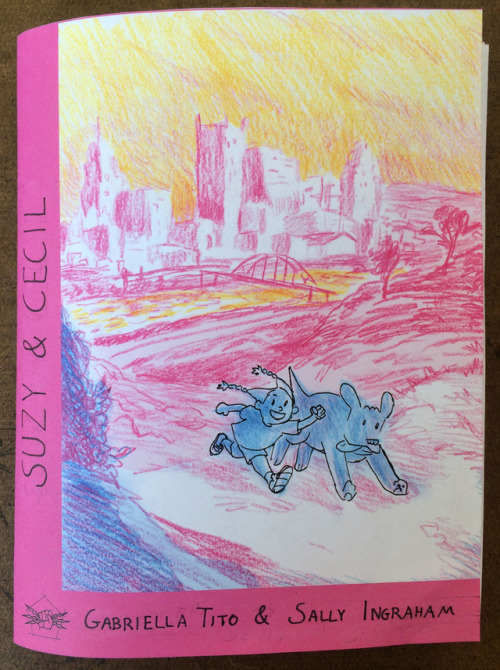
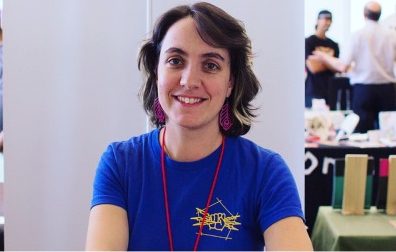
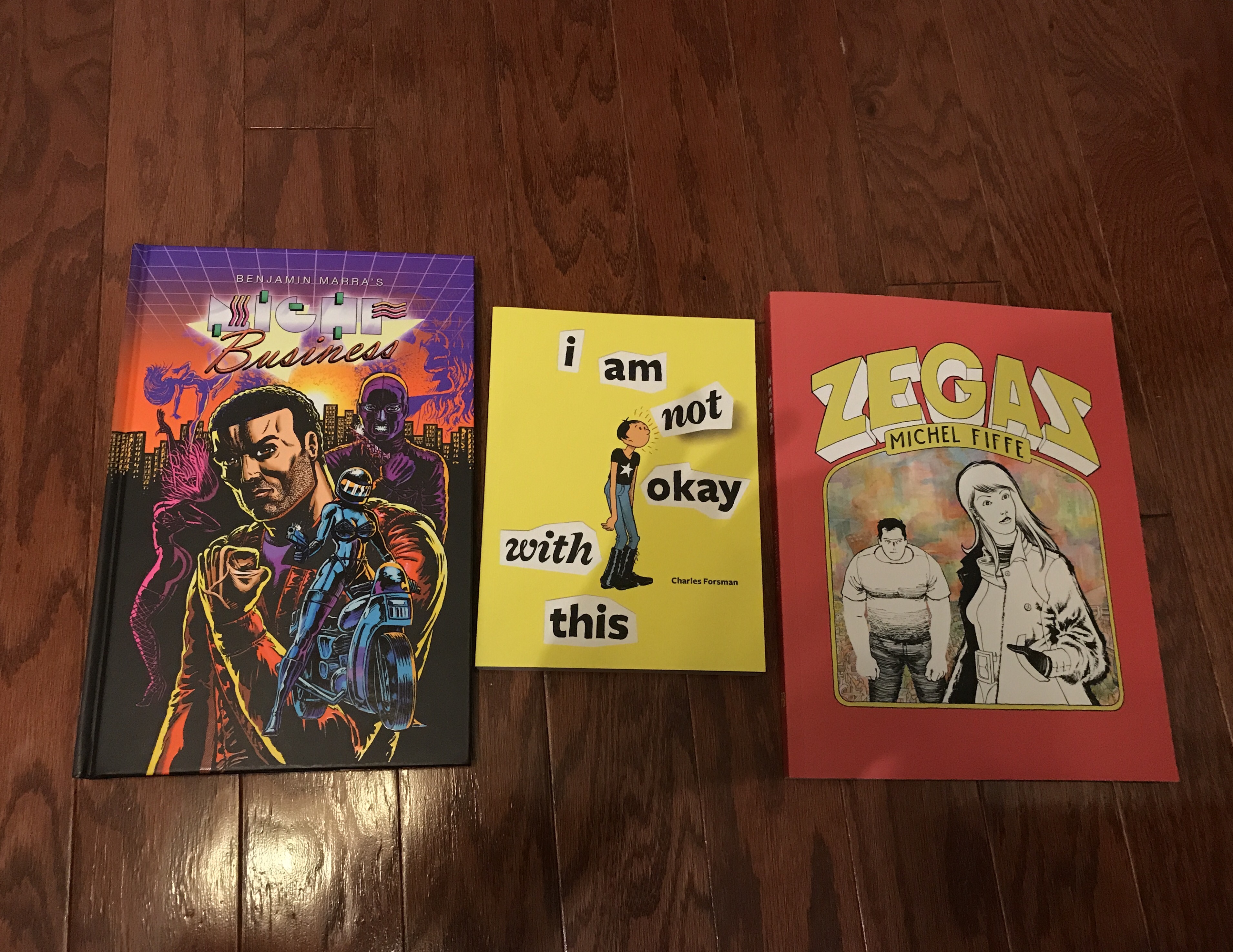
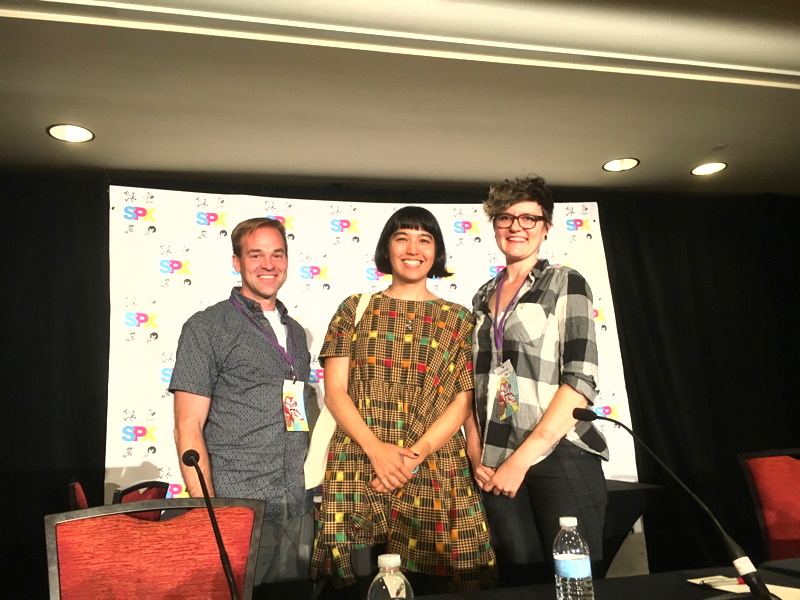
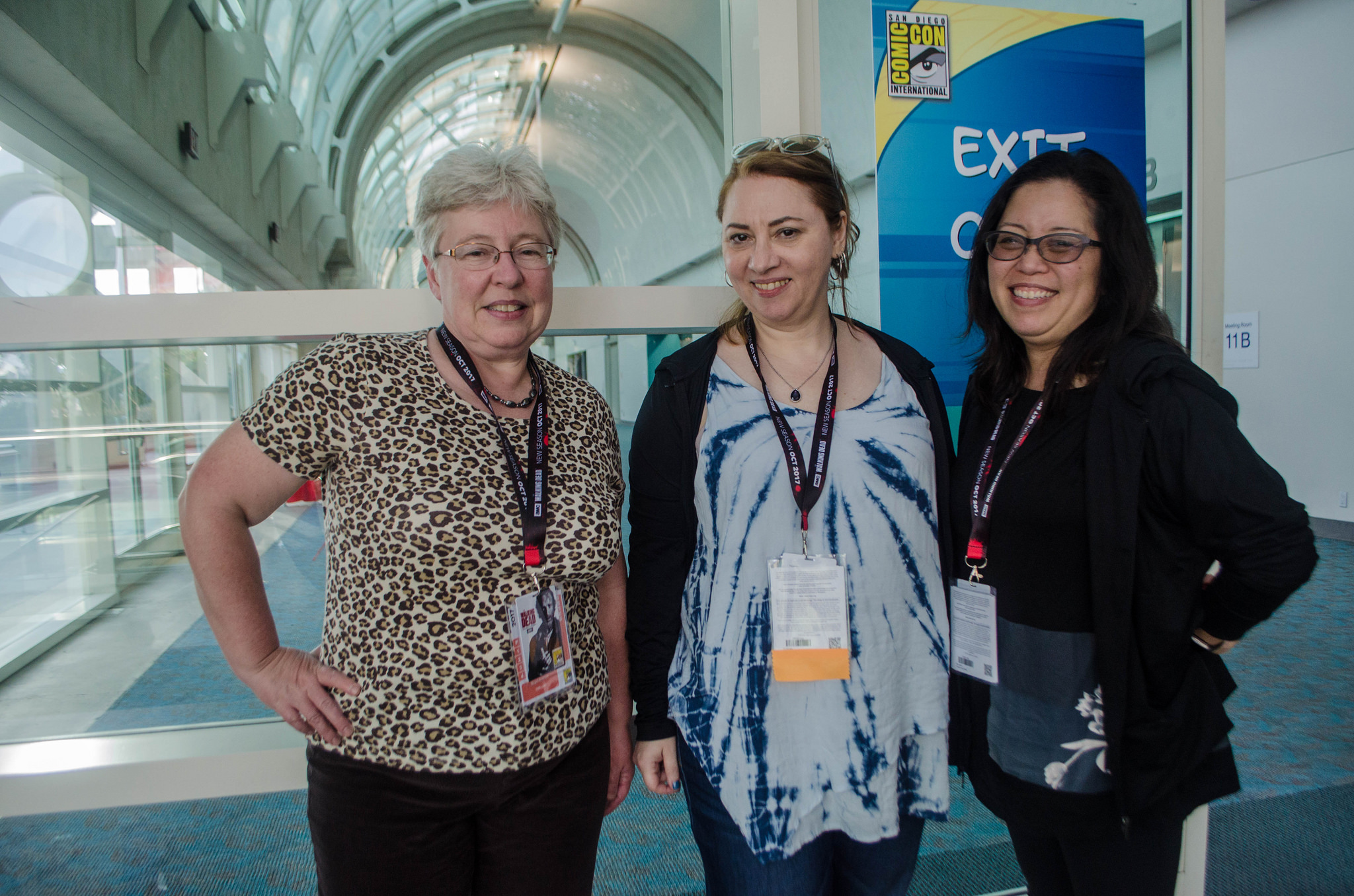
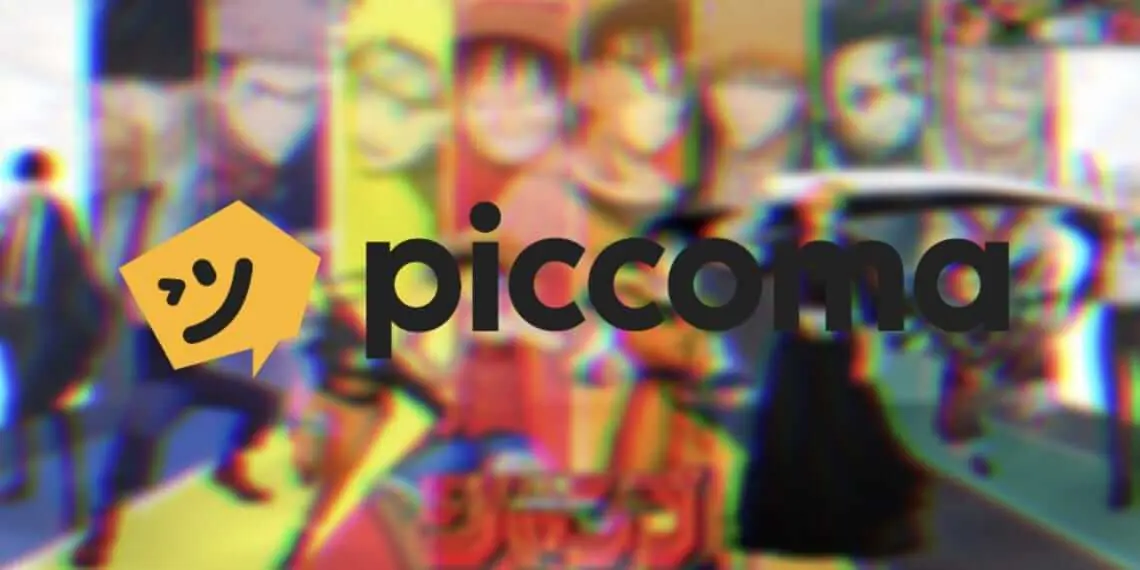

Comments are closed.